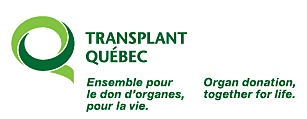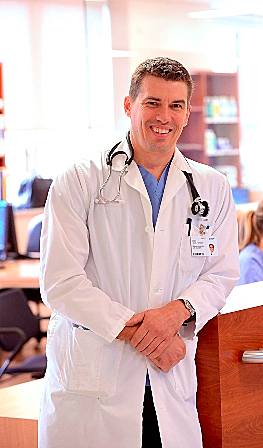PF Patient in Need of New Lungs Shares Her Story for World Organ Donation Day

Today, Oct. 17, is the 11th annual World Day for Organ Donation and Transplantation. While medical advances have resulted in increasing numbers of transplants performed each year, the availability of donor organs is still not enough to fulfill the urgent needs of all those awaiting a transplant.
One reason for the limited availability is that donations from hundreds of registered donors are blocked by relatives after a would-be donor’s death, because they find the decision too emotionally difficult. While understandable in a time of extreme stress, such refusals hurt both the donor’s wishes and those awaiting a transplant.
 Transplant Quebec, based in Montreal, explains that those families members who, despite being confronted with a difficult loss, consent to an organ donation often later agree that the gesture brought them comfort and relief. A single donor can provide organs for eight people and tissues for 15 more.
Transplant Quebec, based in Montreal, explains that those families members who, despite being confronted with a difficult loss, consent to an organ donation often later agree that the gesture brought them comfort and relief. A single donor can provide organs for eight people and tissues for 15 more.
Linda Paradis, 58, of Montreal, is among those in Quebec on an emergency transplant wait list, and told her story in a Transplant Quebec press release. Paradis, a non-smoking mother of three and an accountant, was an avid athlete, health and fitness enthusiast, and helicopter pilot when she was officially diagnosed in June 2016 with idiopathic pulmonary fibrosis (IPF). Paradis is now on oxygen 24/7 and awaits a lung transplant. (An estimated 1,200 people in Quebec are in need of organs, Transplant Quebec reported.)
IPF is characterized by scarring of lung tissue. Over time, the scarring worsens, making it more and more difficult to breathe due to the lungs’ decreasing ability to take in enough oxygen. Possible causes of pulmonary fibrosis are thought to include exposure to environmental toxins, medication side effects, or chronic inflammation and infections. Treatments are limited and become more so as the disease progressively worsens.
To help raise awareness of the critical need for donor organs, Paradis went public with her story, hoping to underscore the reality of what often happens even with people who sign a donor card.
“October 2014 was the first sign that something serious was happening with my lungs as I was short of breath while exercising,” Paradis said in the release. “Medication was given and I was able to continue to do sports vigorously until February 2016, but then my decline was rapid. This past June, I was put on oxygen 24 hours a day. Today, I can barely walk as my lungs are deteriorating quickly. Doctors tell me that if I don’t get donor lungs soon, I may not have even six months to live.
“It’s unbelievable how fast this disease can take hold of you as I watch my abilities diminish and now breathing is all my focus,” she said. “I lived an extremely healthy lifestyle, to stay healthy, but sadly, this could happen to anyone. The reality is that non-smokers who are in excellent shape and active, doing everything right, can get this too.”
Paradis asks that donors talk to their family members, and clearly share their organ donation wishes as soon as possible.
“People don’t realize that signing the card is not enough,” Paradis said. “You must have an open conversation … beforehand, to stress that you want your organs donated to ensure the donation is actually made. The conversation will better prepare your family to agree to organ donation upon your passing. There is no greater miracle than giving birth. There is no greater gift then receiving a second chance of life when an organ is given from a pure stranger. Without an organ donation, death is my destiny as well as for many others, young and old.”
Organs needed for transplants include the lungs, heart, liver, pancreas, kidneys and intestines, while bone, skin, heart valves, tendons, and corneas are the main types of tissues used for grafts, Transplant Quebec said, adding that a person’s age does not necessarily affect an ability to donate.
“If things go wrong with my transplant,” Paradis said, “I will become myself an organ donor and my family is fully aware of my motivation to give.”
 Dr. Jean-François Lizé, medical director of Organ Donation for Transplant Quebec, an ICU specialist at the Centre Hospit
Dr. Jean-François Lizé, medical director of Organ Donation for Transplant Quebec, an ICU specialist at the Centre Hospit alier de
alier de
l’Université de Montréal (CHUM), also stressed the importance of donors informing family members of their wishes.
“If your family is aware of your intentions, they can act on your behalf. Unfortunately too often families may oppose organ donation because they are unaware of their loved one’s wishes,” he said.
“Transplant specialists only intervene once all efforts to save a patient’s life have failed, death has been pronounced, and the consent for organ and tissue donation has been confirmed,” Lizé added. “Linda knows what it is like to wait for a lung, and is suffering because we are losing too many organ donation opportunities.”
“We need to find ways to facilitate organ donations and make it a natural human reflex so that the decision is known in advance,” Paradis said, “easing the emotion when loved ones are grieving the most. Opportunities could include a public online registry linked to every medicare card issued, consenting to organ donation pre-surgery when signing the risk of surgery form. Other ways need to be explored.”
According to the U.S. National Kidney Foundation, as of Jan. 11, 2016, 121,678 people in the U.S. were waiting for potentially lifesaving transplants, including 100,791 awaiting a new kidney. In 2014, only 17,107 kidney transplants took place nationwide, and an estimated that 13 people died each day that year while waiting for a kidney (4,761 in total), while another 3,668 became too sick to undergo a kidney transplant.
Sources:
Transplant Quebec
U.S. National Kidney Foundation







